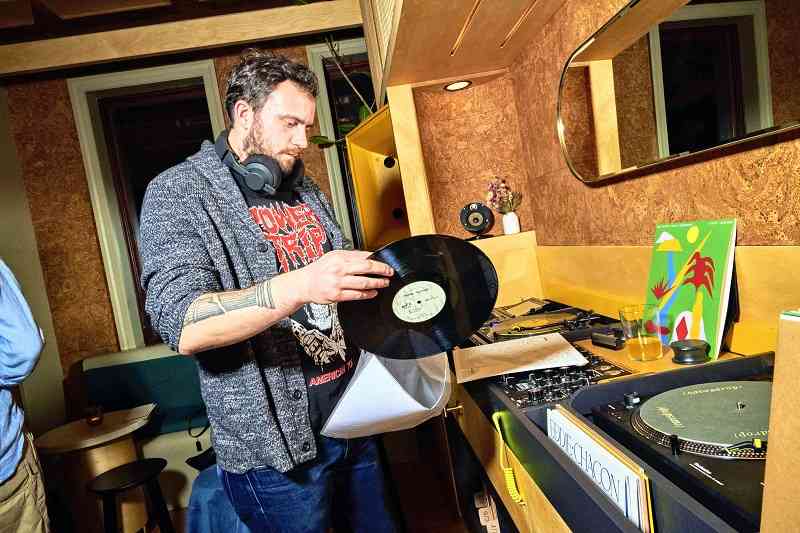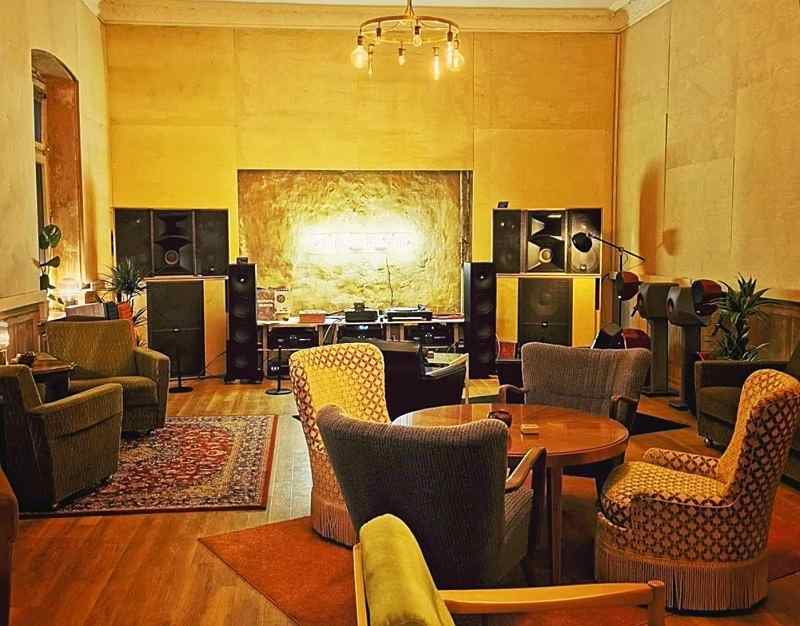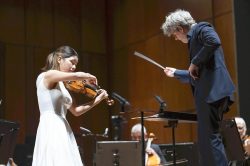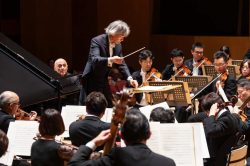
Dan Wissinger plays a record at Eavesdrop in New York.
20:00 JST, September 12, 2022
Jazz kissa, or cafes with extensive collections of jazz records and high-end audio equipment for playing them for customers, originated in Japan. Now listening bars, influenced by the culture of jazz kissa, are opening up one after the other overseas as cozy places to enjoy music.
Jazz bars and jazz cafes in the West typically feature live performances on site. This seems to have made the jazz kissa arrangement of quietly listening to records and CDs on top-notch audio equipment in such establishments a novelty for people overseas. The lack of interaction between customers has also been a draw for those still wanting to get their music fix amid the novel coronavirus pandemic.
Respect for music
Jazz and funk records turn out tunes from high-end speakers at the far end of New York’s Eavesdrop listening bar. Customers look relaxed as they silently listen to the music.
Dan Wissinger, one of the owners of the bar that opened in March, learned about jazz kissa on YouTube about five years ago and decided to open a bar himself. “I think what’s interesting is the respect for a record that I’ve heard, you know, happens in Japan,” said the 31-year-old, who found the idea of letting customers listen, rather than dance, to music innovative.
It is believed that jazz kissa first appeared in Tokyo around 1929 and reached their prime in the 1960s and ’70s. At the time, it was still difficult to get jazz musicians to come all the way to Japan from the United States, which is why people took to listening to records at jazz kissa, or so the story goes. Subsequently, these establishments turned into listening bars that do not limit the genre of music played.
According to editor Katsumasa Kusunose, 63, who is well-versed on the subject of listening bars, at least 50 such bars have opened in many countries across the West and Asia in the past decade. The movement started around 2010, when foreign musicians touring Japan visited jazz kissa and listening bars in the country and posted about them on social media. Jazz kissa in Japan are often operated more or less as a hobby by the owners without any thought of gain, whereas there appears to be a tendency for their overseas counterparts to be larger in scale, with a substantial amount of money being invested in their interiors and equipment.
“Vinyl records and vintage audio equipment are in vogue globally. [Listening bars] are probably seen as having good business potential,” Kusunose said.
No pandemic threat
Even with the COVID-19 pandemic breaking out in 2020, there has been no slowing down the pace of listening bar openings overseas.
“In the old days, customers chatting in jazz kissa were told off. Now people think listening to music silently is a safer option,” said listening bar producer Yusuke Fujita, 39.
In July last year, Laurin Joel Schafhausen, 41, opened owls bar, a listening bar, in Bielefeld, Germany. “The listening bar trend is a part of the big worldwide movement of ‘slow food’ or ‘mindfulness,’” he said. “We human beings have to learn to do things slower, and a listening bar, a jazz kissa, is a very good place to do things slowly.”

A look at the interior of owls bar in Bielefeld, Germany.
Top Articles in Culture
-

Junichi Okada Wears Three Hats in ‘Last Samurai Standing,’ Serving as Star, Producer, Action Choreographer in Thrilling Netflix Period Drama
-

Lifestyle at Kyoto Traditional Machiya Townhouse to Be Showcased in Documentary
-

Maison&Objet Kicks off Near Paris with Japanese Lighting Designers’ Installations on Display, Creating Rich Environment
-

‘Jujutsu Kaisen’ Voice Actor Junya Enoki Discusses Rapid Action Scenes in Season 3, Airing Now
-

Prestigious Japanese Literature Prize Names Toriyama, Hatakeyama as Winners
JN ACCESS RANKING
-

Univ. in Japan, Tokyo-Based Startup to Develop Satellite for Disaster Prevention Measures, Bears
-

JAL, ANA Cancel Flights During 3-day Holiday Weekend due to Blizzard
-

China Confirmed to Be Operating Drilling Vessel Near Japan-China Median Line
-

China Eyes Rare Earth Foothold in Malaysia to Maintain Dominance, Counter Japan, U.S.
-

Japan Institute to Use Domestic Commercial Optical Lattice Clock to Set Japan Standard Time

























